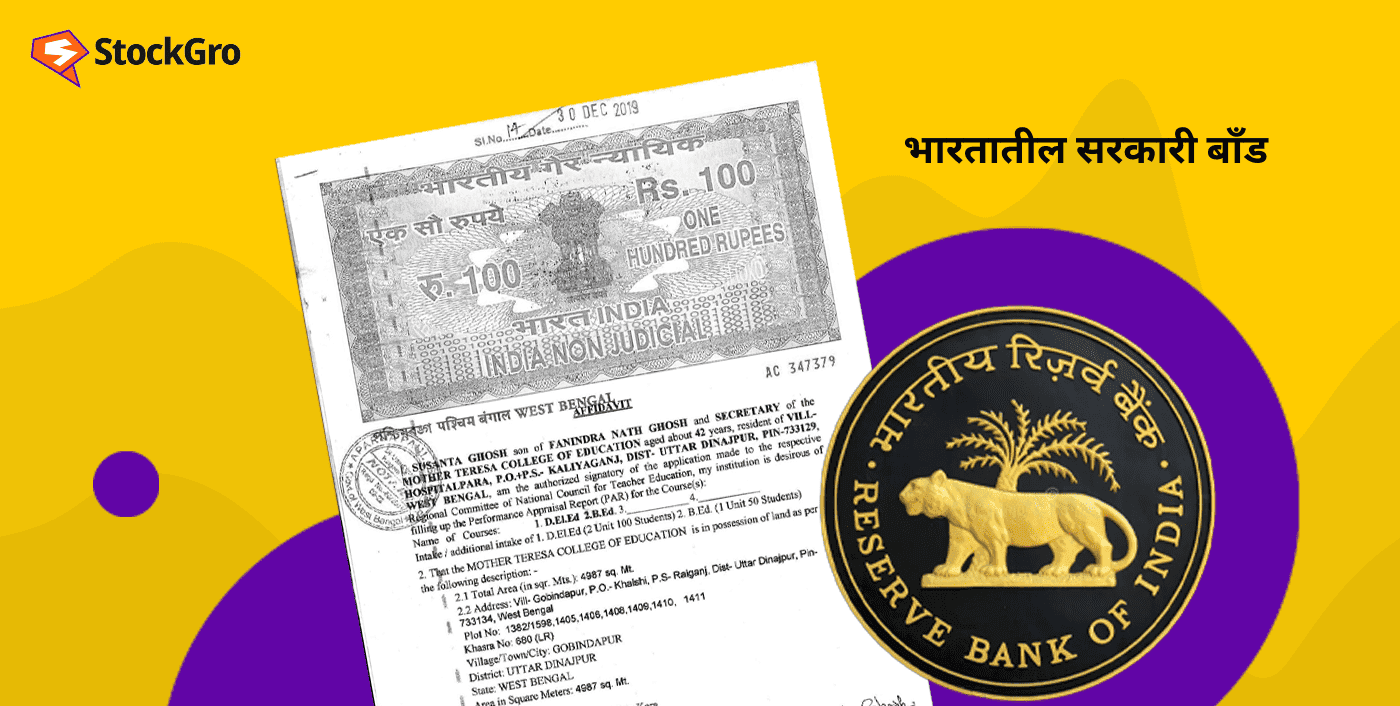Government Bonds Explained: Lend Money to GoI & Earn Safe Passive Income
how "government bonds work", their benefits, risks, interest rates, and how you can earn safe passive income by lending money to the Government of India.
Government Bonds: Lend Money to GoI and Earn Passive Income
When it comes to investing in India, most people instantly think of stocks, mutual funds, or real estate. But there’s another safe and guaranteed source of income that not many retail investors explore: Government Bonds.
By buying a government bond, you essentially lend your money to the Government of India (GoI) for a fixed time.
Government Bonds Explained:
In return, the government pays you interest at regular intervals.
This makes bonds one of the most secure investment options available for people looking for predictable and stable passive income.
In this article, we’ll explore what government bonds are, how they work, why they are considered safe, and how you can include them in your investment portfolio.
What Are Government Bonds?
Government bonds are debt instruments issued by the central or state government. They allow the government to raise funds for infrastructure spending, welfare programs, development projects, or deficit financing. When you purchase a bond, you are not donating money. Instead, you are lending money to the government with the assurance that:
You will receive regular interest payments (known as coupon payments).
Your principal amount will be fully repaid at maturity.
For example, if you buy a ₹10,000 government bond with a 7% annual interest rate for 5 years, you will earn ₹700 every year as income, and at the end of 5 years, you will get your full ₹10,000 back.
Why Are Government Bonds Safe?
The biggest reason government bonds are considered safe is that they are backed by the sovereign guarantee of the Government of India. This makes the risk of default almost negligible compared to corporate bonds or stock market investments.
Banks, insurance firms, and pension funds hold a large part of their portfolio in government bonds for this very reason—security and predictability. As a small investor, you can access the same safe instrument that big institutions trust.
Types of Government Bonds in India
There are various categories of government bonds available in the Indian market:
Dated Government Securities (G-Secs): Long-term bonds with fixed maturity and interest.
Treasury Bills (T-Bills): Short-term instruments ranging from 91 days to 364 days; they don’t pay interest but are issued at a discount and redeemed at face value.
Sovereign Gold Bonds (SGBs): Bonds linked to the price of gold, offering both appreciation and fixed interest.
RBI Savings Bonds: Popular among retail investors, these offer fixed interest (currently around 7.75%) with no upper investment limit.
State Development Loans (SDLs): Issued by state governments to raise funds for state-level projects.
Benefits of Investing in Government Bonds
Low Risk: It is almost impossible for the government to default, making it safer than corporate bonds.
Fixed Income: With guaranteed interest payments, you can plan your passive income better.
Portfolio Diversification: Bonds are a good hedge against stock market volatility.
Liquidity: Most government bonds are tradable on exchanges, so you are not locked in completely.
Tax Benefits (in some cases): Certain bonds come with tax exemptions on interest.
Risks and Limitations
Even though government bonds are safe, they are not risk-free. A few limitations include:
Lower Returns Compared to Equity: Stocks or equity-linked mutual funds tend to outperform bonds in the long run.
Inflation Risk: If inflation is higher than the bond interest, your real return reduces.
Interest Rate Risk: If RBI increases interest rates, older bonds with lower rates decrease in value for resale.
Despite these, for conservative investors or those nearing retirement, bonds remain a trusted option.
How to Invest in Government Bonds in India
Retail investors today have many easy ways to invest in government bonds:
RBI Retail Direct Scheme: This allows you to open an account directly with RBI and buy bonds without intermediaries.
Stock Exchanges (NSE/BSE): Non-competitive bidding routes are available for bonds through online platforms.
Banks & Post Office: Selected bonds like RBI Savings Bonds and Sovereign Gold Bonds are offered via branches.
Mutual Funds / ETFs: You can indirectly invest in government securities through debt funds that hold them.
Role of Government Bonds in Passive Income Strategy
If you are looking for steady passive income and want to minimize risk, bonds should be part of your portfolio.
For example, retired people who don’t want market volatility can rely on government bonds to receive stable monthly or yearly payouts.
Younger investors can use bonds as a stabilizer in combination with high-growth stocks or mutual funds.
Think of government bonds as the foundation of your financial building—they may not give you the flashiness of stock market profits, but they give stability and peace of mind.
Conclusion
Government bonds in India are a highly secure way of lending money to the Government of India and getting assured returns in the form of interest. They may not make you rich overnight, but they will certainly provide you with stability, predictable income, and financial discipline.
For conservative investors, retirees, or anyone seeking a low-risk opportunity to generate passive income, government bonds remain one of the smartest choices.
